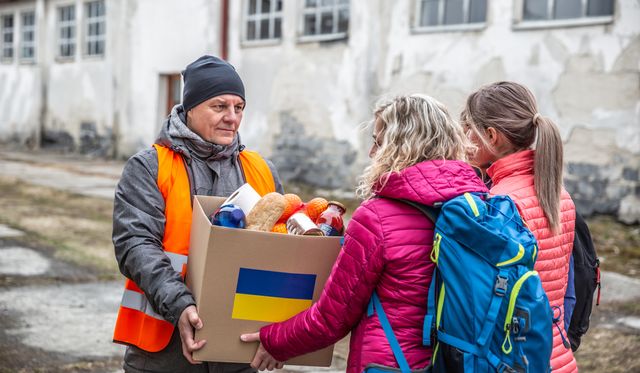Although U.S. and UK regulators have reiterated in various ways that activities by non-government organisations or international organisations providing aid to people impacted by Russia’s war in Ukraine are not targeted by sanctions, navigating the myriad sanctions remains challenging.
In response, at the end of June 2023, the U.S. Office of Foreign Assets Control (OFAC) and UK Office of Financial Sanctions Implementation (OFSI), issued a joint fact sheet (the “Joint Fact Sheet”) to “provide additional clarity” on the areas where humanitarian aid is permitted, e.g., by licenses, exemptions, or other authorisations. The Joint Fact Sheet also summarises guidance with respect to goods and activities relevant to humanitarian aid and alleviating the impacts of the war, such as trade in agriculture, providing medicine and medical services, and payments for personal maintenance and emergencies.
Overview
The Joint Fact Sheet lays out three frequently asked questions followed by a chart broken down by activity, listing the key authorisations under each of the U.S. and UK sanctions, and collating guidance and FAQs of particular relevance to humanitarian aid and charity sector actors. The Joint Fact Sheet also helpfully aggregates contact information for OFAC and OFSI, as well as for queries related to UK trade export sanctions or related to UK crown dependencies and overseas territories.
Humanitarian assistance FAQs
1. Do U.S. and UK sanctions targeting Russia provide exceptions for non-government organisations (NGOs) or international organisations (IOs) providing humanitarian assistance? In summary, while both the U.S. and the UK have issued general license(s) related to humanitarian aid, it is important to note that these general licenses for humanitarian aid only cover certain entities (such as the United Nations and its programmes and the Red Cross), and certain categories of humanitarian activity. Aid still may not be destined for the benefit of sanctioned persons. Specific licenses will be considered on a case-by-case and priority basis.
2. Can U.S. and UK financial institutions process transactions related to the exportation of agricultural commodities, medicine, or medical devices to, from, transiting, or related to Russia? There are no specific U.S. sanctions on the exportation of agricultural commodities, medicine or medical devices to, from, or related to Russia. Russia-related general license (“GL”) 6C also authorises certain transactions for the prevention, diagnosis or treatment of COVID-19. Accordingly, U.S. financial institutions and foreign financial institutions (without concern for secondary sanctions exposure) may process transactions which are either not prohibited by U.S. sanctions and/or otherwise permitted under GL 6C. The UK permits this activity where the finances are being provided in the context of humanitarian delivery or other activities that support basic human needs.
3. Can U.S. and UK financial institutions process transactions involving Joint Stock Company Russian Agricultural Bank (Russian Agricultural Bank) related to the exportation of agricultural commodities to, from, transiting, or related to Russia? Russian Agricultural Bank is not subject to a U.S. asset freeze but is subject to U.S. “sectoral” sanctions related to dealings in new debt and equity. GL 6C authorises transactions involving Russian Agricultural Bank – to the extent they would otherwise breach the sectoral sanctions – where covered under the GL for the prevention, diagnosis and treatment of COVID-19.
In contrast, the Russian Agricultural Bank is subject to UK asset freezing measures. However, under the UK GL related to agricultural commodities, non-designated exporters may receive funds from a designated person, including for example, the Russian Agricultural Bank, in connection with the export, sale, production and transport of Agricultural Commodities (as defined therein).
Summary
While the Joint Fact Sheet is a welcome summary of available licenses and guidance, it also highlights that differences remain between the permitted activities under U.S. and UK sanctions, and that activities in Russia and disputed territories of Ukraine continue to require careful consideration, even in the context of providing humanitarian aid.
Stay Up To Date with Ropes & Gray
Ropes & Gray attorneys provide timely analysis on legal developments, court decisions and changes in legislation and regulations.
Stay in the loop with all things Ropes & Gray, and find out more about our people, culture, initiatives and everything that’s happening.
We regularly notify our clients and contacts of significant legal developments, news, webinars and teleconferences that affect their industries.

